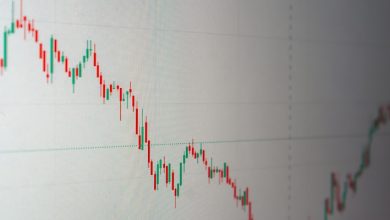The Evolution of Market Analysis in the Age of Blockchain

- Understanding the traditional methods of market analysis
- The impact of blockchain technology on market analysis techniques
- How smart contracts are revolutionizing market analysis processes
- Challenges and opportunities in implementing blockchain in market analysis
- Exploring the role of decentralized finance in market analysis
- The future of market analysis in a blockchain-dominated world
Understanding the traditional methods of market analysis
Traditional methods of market analysis have been the cornerstone of understanding consumer behavior and making informed business decisions for decades. These methods involve gathering data through surveys, focus groups, and historical sales data to identify trends and patterns in the market. By analyzing this data, businesses can gain insights into consumer preferences, market demand, and competitive landscape.
Surveys are a common method used to gather information from a sample of the target market. By asking specific questions about product preferences, buying habits, and demographics, businesses can better understand their customers and tailor their marketing strategies accordingly. Focus groups take this a step further by bringing together a small group of individuals to discuss their opinions and experiences related to a product or service.
Historical sales data is also a valuable tool in market analysis. By examining past sales figures, businesses can identify seasonal trends, peak buying times, and areas of growth or decline. This information can help businesses forecast future sales, set pricing strategies, and allocate resources effectively.
Overall, traditional methods of market analysis provide businesses with valuable insights into consumer behavior and market trends. While these methods have been effective in the past, the evolution of technology and the rise of blockchain have brought new opportunities for market analysis that can further enhance decision-making processes.
The impact of blockchain technology on market analysis techniques
Blockchain technology has revolutionized market analysis techniques in various ways, providing a more transparent and secure platform for analyzing market trends and making informed decisions. One of the key impacts of blockchain on market analysis is the enhanced accuracy and reliability of data. The decentralized nature of blockchain ensures that data is tamper-proof and trustworthy, reducing the risk of manipulation and fraud.
Furthermore, blockchain technology has enabled real-time data sharing and analysis across multiple parties, eliminating the need for intermediaries and streamlining the market analysis process. This increased efficiency allows analysts to access up-to-date information quickly and make more timely decisions based on the most current data available.
In addition, blockchain technology has also facilitated the development of smart contracts, which are self-executing contracts with the terms of the agreement directly written into code. These smart contracts automate various processes in market analysis, such as data collection, analysis, and reporting, reducing the potential for human error and increasing the overall accuracy of market predictions.
How smart contracts are revolutionizing market analysis processes
Smart contracts are transforming the way market analysis is conducted in the blockchain era. These self-executing contracts are programmed to automatically execute and enforce terms of agreements when predefined conditions are met. This has significant implications for market analysis processes, as smart contracts can streamline data collection, automate analysis tasks, and enhance the accuracy and transparency of market insights.
One of the key benefits of smart contracts in market analysis is their ability to securely gather and store data from multiple sources in a decentralized manner. By leveraging blockchain technology, smart contracts can access real-time market data from various platforms and securely store it on the blockchain. This eliminates the need for manual data entry and ensures the integrity and reliability of the data used for analysis.
Moreover, smart contracts can automate the execution of predefined analysis tasks based on specific market conditions. For example, smart contracts can be programmed to monitor price fluctuations, track market trends, and generate reports in real-time. This not only saves time but also reduces the margin of error in market analysis, leading to more accurate and actionable insights for investors and traders.
Another advantage of smart contracts in market analysis is their ability to enhance transparency and trust in the analysis process. Since smart contracts are immutable and transparent by design, all transactions and data processed through the contract are recorded on the blockchain and can be easily verified by all parties involved. This increases accountability and reduces the risk of fraud or manipulation in market analysis.
In conclusion, smart contracts are revolutionizing market analysis processes by providing a secure, automated, and transparent framework for data collection and analysis. By leveraging blockchain technology, smart contracts are enabling more efficient, accurate, and trustworthy market analysis, ultimately empowering investors and traders with valuable insights to make informed decisions in the fast-paced and dynamic world of finance.
Challenges and opportunities in implementing blockchain in market analysis
Implementing blockchain in market analysis presents both challenges and opportunities for businesses. On one hand, the decentralized nature of blockchain technology can provide increased security and transparency in data analysis. This can help businesses gain more accurate insights into market trends and consumer behavior. On the other hand, the complexity of implementing blockchain systems can be a barrier for many companies.
One of the challenges in implementing blockchain in market analysis is the lack of standardization and regulation in the industry. Without clear guidelines, businesses may struggle to integrate blockchain technology into their existing systems effectively. Additionally, the high costs associated with blockchain implementation can be prohibitive for some organizations.
Despite these challenges, there are significant opportunities for businesses that successfully implement blockchain in market analysis. For example, blockchain can streamline data collection and verification processes, leading to more efficient market analysis. This can give businesses a competitive edge by allowing them to make data-driven decisions quickly and accurately.
Furthermore, blockchain technology can enhance trust and credibility in market analysis by providing a secure and immutable record of data. This can help businesses build stronger relationships with customers and partners, leading to increased loyalty and brand reputation. Overall, the potential benefits of implementing blockchain in market analysis outweigh the challenges, making it a valuable investment for businesses looking to stay ahead in the digital age.
Exploring the role of decentralized finance in market analysis
Decentralized finance, or DeFi, has been playing an increasingly significant role in market analysis in recent years. DeFi refers to the use of blockchain technology and cryptocurrencies to recreate traditional financial systems without the need for intermediaries such as banks or brokers. This has opened up new opportunities for investors and analysts to access financial services in a more transparent, efficient, and secure manner.
One key aspect of DeFi in market analysis is the ability to access a wide range of financial instruments and services through decentralized platforms. These platforms allow users to lend, borrow, trade, and invest in various assets without relying on centralized institutions. This decentralized nature provides greater flexibility and control over one’s investments, as well as the ability to participate in markets that were previously inaccessible.
Moreover, DeFi has enabled the creation of automated market analysis tools that utilize smart contracts to execute trades and manage portfolios. These tools can analyze market data in real-time, identify trends, and execute trades based on predefined criteria. By automating these processes, analysts can save time and reduce the risk of human error in their market analysis strategies.
Overall, decentralized finance is revolutionizing market analysis by providing new opportunities for investors and analysts to access financial services in a more efficient and secure manner. With the continued growth of DeFi platforms and tools, the role of decentralized finance in market analysis is only expected to increase in the future.
The future of market analysis in a blockchain-dominated world
In the realm of market analysis, the rise of blockchain technology is reshaping the landscape. The future of market analysis in a blockchain-dominated world is filled with both challenges and opportunities.
One of the key advantages of utilizing blockchain for market analysis is its ability to provide a transparent and secure platform for data collection and analysis. This means that market analysts can have access to real-time, accurate data that is tamper-proof and trustworthy.
Furthermore, blockchain technology can streamline the process of market analysis by automating tasks such as data collection, verification, and reporting. This can lead to increased efficiency and accuracy in analyzing market trends and making informed decisions based on data-driven insights.
On the other hand, the decentralized nature of blockchain technology can also pose challenges for market analysts. The sheer volume of data generated on the blockchain can be overwhelming, making it difficult to sift through and extract meaningful insights. Additionally, the lack of central authority in blockchain networks can make it challenging to verify the accuracy and reliability of the data being analyzed.
Overall, the future of market analysis in a blockchain-dominated world holds great promise for revolutionizing the way data is collected, analyzed, and utilized in making informed business decisions. As the technology continues to evolve and mature, market analysts will need to adapt to these changes and embrace the opportunities that blockchain has to offer in order to stay ahead in an increasingly competitive market landscape.



